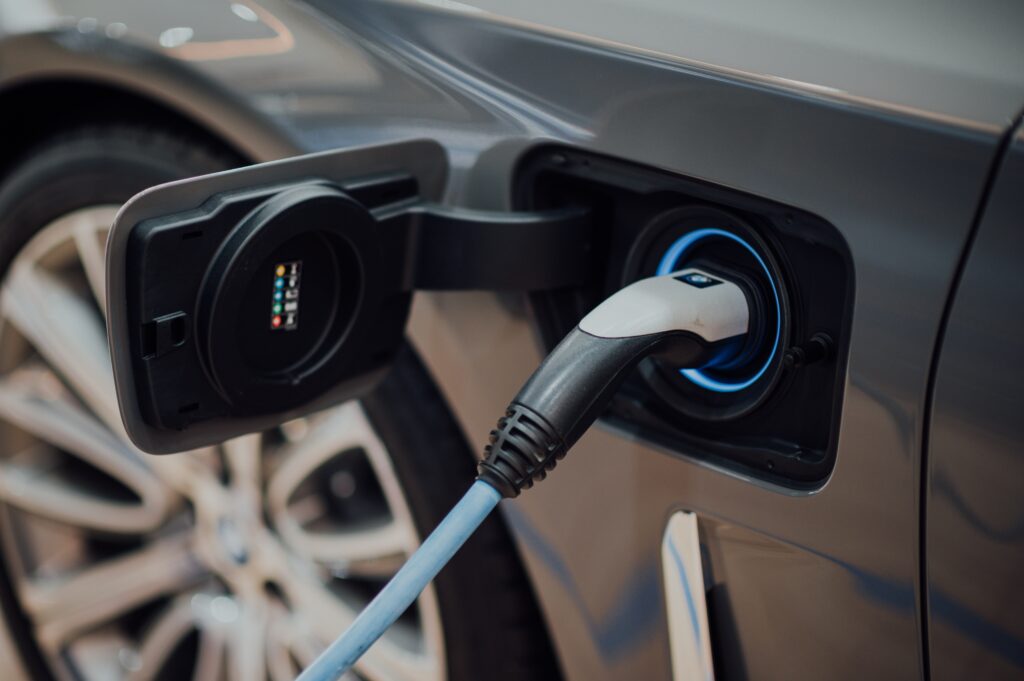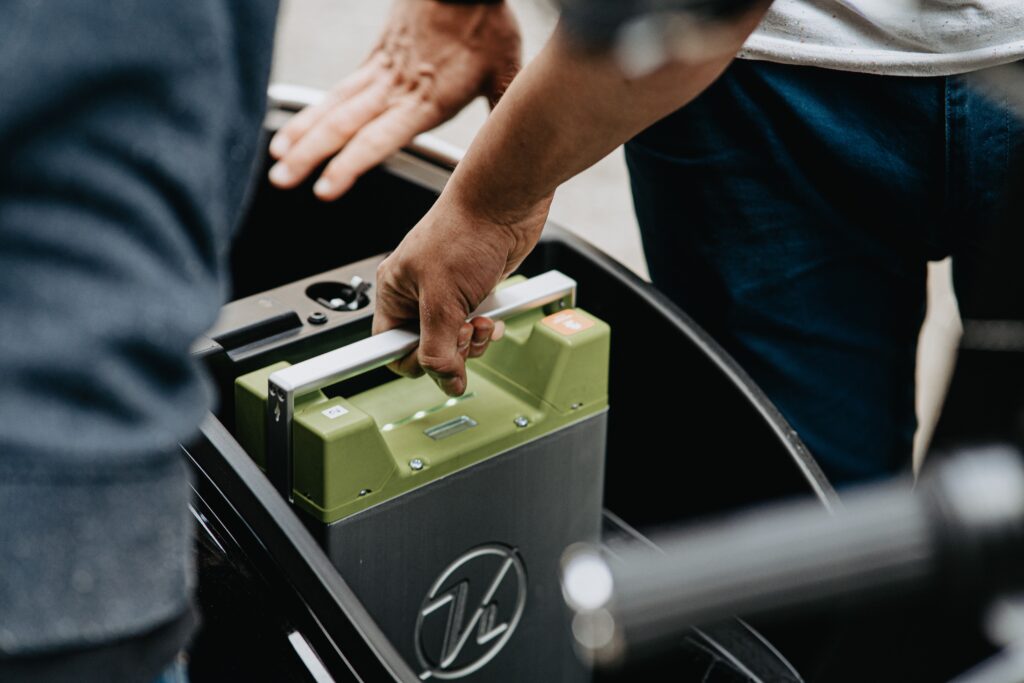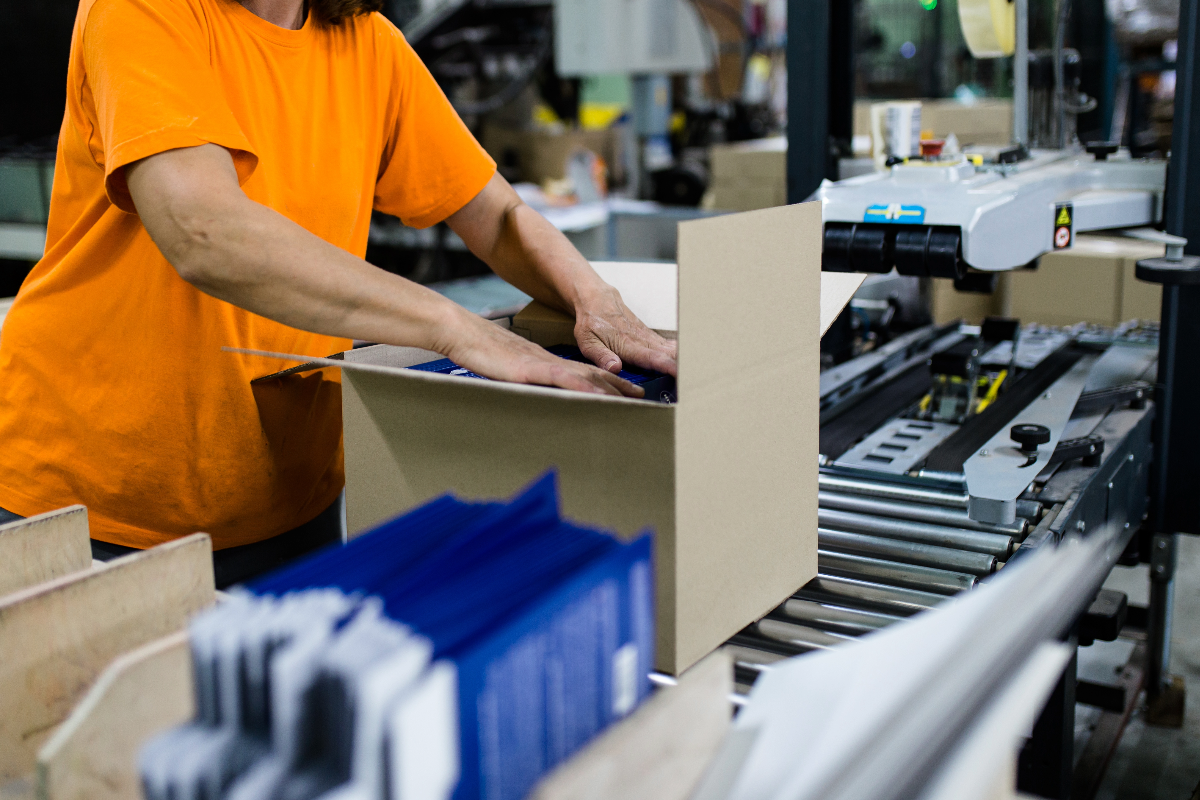BLOG
Are Electric Vehicle (EV) Batteries a Green Option?

Electric Vehicle Technology
Here at Flame UK, we’ve moved over to electric vehicles. All of our work vehicles are now EVs, and we’ve had an EV charging point installed at our office so we can charge while we work.
Although new EV technology means our vehicles are greener, what happens to the batteries at the end of their life? Lithium-ion (Li-ion) EV batteries are becoming more popular and can be found in many new technologies such as electric vehicles. However, only about 5% of Li-ion EV batteries are recycled globally at the moment. With the increase in EVs, and some manufacturers announcing stopping selling petrol-and diesel- fuelled vehicles within the next 15 years, we have a look at the current difficulties in recycling Li-ion batteries, and what is being done to take steps towards making recycling them easier and more accessible.
Battery Recycling
Batteries should be recycled because of the chemicals and metals that could leak when they are placed in landfill – lead, lithium, mercury, zinc and cadmium are present in many standard batteries. In general, standard batteries can be recycled but some are more difficult to dispose of than others. Most household recycling plants accept batteries, even car batteries, or they can be collected by business waste services. There are also many battery collection points in local supermarkets, community venues and offices.
Most batteries are recycled by being shredded, with all the shredded metals then being mixed together and made into powder. This is then separated by various processes- such as melting or dissolving in acid to extract the usable metals. This method doesn’t really work with lithium or EV batteries – they are much more complex than traditional lead-acid batteries. They could even be dangerous if taken apart.
Lithium EV Batteries

Lithium batteries are present in our mobile phones, laptops and electric vehicles, and in devices such as battery storage technology for renewable energy. They differ from standard batteries, in that they are usually longer lasting, lighter, and can withstand low temperatures – making them ideal for use in electric vehicles.
However, EV batteries are heavier and larger than standard car batteries, and are made up of several hundred individual lithium-ion cells, all of which need dismantling if any recycling is to occur. They contain hazardous materials, and could potentially be dangerous if dismantled incorrectly.
Because the technology for Li-ion batteries in EV vehicles is relatively new, recycling processes have not yet been developed properly. This, coupled with the complex structure of the batteries, is why most EV batteries are not yet able to be recycled.
Those that are recycled are currently dismantled by hand in lab conditions – a costly and time consuming process. In fact, it is cheaper at the moment mine most of the metals that are found in EV batteries, than it is to recycle them.
Environmental Cost of EV Batteries

Global demand for lithium for use in batteries is on the increase. Between 2008 and 2018, annual production rose from 25,400 tonnes to 85,000 tonnes (source ); and global consumption of lithium has increased by 33% since 2020 ( source ). This is largely attributed to the huge growth in electric vehicles, and advances in battery storing technology for use in renewable energy.
The environmental cost, though, of mining the elements needed for EV batteries is huge; and effective, automated ways of recycling these batteries needs to be established.
Mining for lithium, which takes place mainly in countries such as Australia, China and Chile, causes damage to local environments and habitats, as well as using an enormous amount of energy and water to extract the metals. Around one third of the world’s lithium comes from salt flats, with the process requiring huge quantities of water in areas that are usually arid. It takes 2.2million litres of water to mine one tonne of lithium (source).
Other countries use different extraction methods – by exposing the lithium to very high temperatures – which takes a lot of energy.
There are also the issues of habitat loss, toxic waste and contamination that mean lithium mining is potentially a harmful process. And with only finite reserves available, the time has come to look into proper recycling of Li-ion batteries.
EV Battery Recycling Process
As EV batteries have a long life, around 8 -10 years, and new technology and uses are constantly developing, there are currently very few EV batteries that have reached the end of their useful life. By 2040, it is estimated that there could be 200,000 tonnes of Li-ion batteries that need to be recycled (source).
This means that recycling methods for these batteries have not fully been developed. EV batteries also vary substantially between manufacturers, in terms of how they are built and their chemical composition. Added to this the rapidly developing and changing technology for EV batteries, it is not surprising that it has been difficult to establish a one-size-fits-all approach so far.
The structure of the batteries also makes it very difficult to dismantle for recycling – the batteries are made up of individual cells that are sealed together.
Whilst some manufacturers and recycling companies are able to recycle EV batteries, the process is tricky. As mentioned above, EV batteries are currently dismantled by hand for recycling, with the cells then being dissolved or burned to create a solution from which the metals and other substances can be extracted for reuse.
This is far from ideal – dismantling the batteries by hand is dangerous for operatives – particularly in countries where health and safety legislation is more lax; and creating useable elements from a mixture of elements is yet another energy intense process. Processes need to be automated to make recycling easier, cheaper and more widely available.
However, some organisations are working on developing these recycling techniques. REDUX Recycling, based in Germany, have developed a new method to recycle batteries that can recycle 95% of metals within the batteries (source). Work being carried out at the Faraday Institution is looking at developing robotic processes for disassembling Li-ion batteries and using ultrasonic technology to remove and recycle the difficult parts of the battery. This technology can recycle up to 100 times more material than “traditional” recycling methods, and for less cost. It is hoped that this can be scaled up to be able to recycle a variety of Li-ion batteries – the aim is to have a working demonstrator in a production facility within the next 18 months (source).
Interesting times ahead – we will be keeping an eye on recycling technologies for EV batteries, certainly when our vehicles reach the end of their life the signs are promising that there will be effective and economical recycling technology available.
Further Reading
Lithium costs a lot of money—so why aren’t we recycling lithium batteries? – Ars Technica
Are Lithium Ion Batteries Recyclable? What You Need to Know (solarreviews.com)
https://www.bbc.com/future/article/20220105-lithium-batteries-big-unanswered-question
Are Electric Car Batteries Recyclable? (treehugger.com)
https://www.nature.com/articles/d41586-021-01735-z




